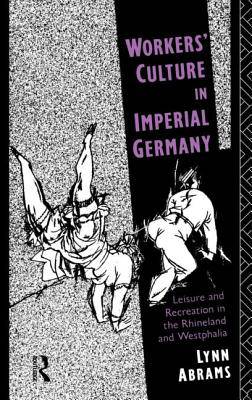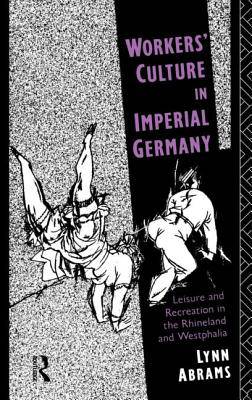
Bedankt voor het vertrouwen het afgelopen jaar! Om jou te bedanken bieden we GRATIS verzending (in België) aan op alles gedurende de hele maand januari.
- Afhalen na 1 uur in een winkel met voorraad
- In januari gratis thuislevering in België
- Ruim aanbod met 7 miljoen producten
Bedankt voor het vertrouwen het afgelopen jaar! Om jou te bedanken bieden we GRATIS verzending (in België) aan op alles gedurende de hele maand januari.
- Afhalen na 1 uur in een winkel met voorraad
- In januari gratis thuislevering in België
- Ruim aanbod met 7 miljoen producten
Zoeken
Workers' Culture in Imperial Germany
Leisure and Recreation in the Rhineland and Westphalia
Lynn Abrams
Hardcover | Engels
€ 335,95
+ 671 punten
Omschrijving
Workers Culture in Imperial Germany represents the first alternative approach to the study of workers' culture in Imperial Germany. It is also the first comprehensive historical analysis of the emergence of Germany's modern leisure industry. The central concern of the book is the emergence of a distinct workers' culture which provided a disparate and heterogeneous working class with a focus of identity in an alien and hostile society. Lynn Abrams focuses on the leisure activities enjoyed by workers in the major cities of Bochum and Dusseldorf. She provides a comprehensive coverage of a whole range of popular amusements and recreations on offer including festivals, pubs, Tingel-Tangels, dance halls, clubs and cinema. The book is also a major contribution to the social history of working-class life in the nineteenth century, contributing to the debate over the role of a working class culture in Imperial Germany.
Specificaties
Betrokkenen
- Auteur(s):
- Uitgeverij:
Inhoud
- Aantal bladzijden:
- 224
- Taal:
- Engels
Eigenschappen
- Productcode (EAN):
- 9780415076357
- Verschijningsdatum:
- 26/03/1992
- Uitvoering:
- Hardcover
- Formaat:
- Genaaid
- Afmetingen:
- 162 mm x 236 mm
- Gewicht:
- 498 g

Alleen bij Standaard Boekhandel
+ 671 punten op je klantenkaart van Standaard Boekhandel
Beoordelingen
We publiceren alleen reviews die voldoen aan de voorwaarden voor reviews. Bekijk onze voorwaarden voor reviews.









